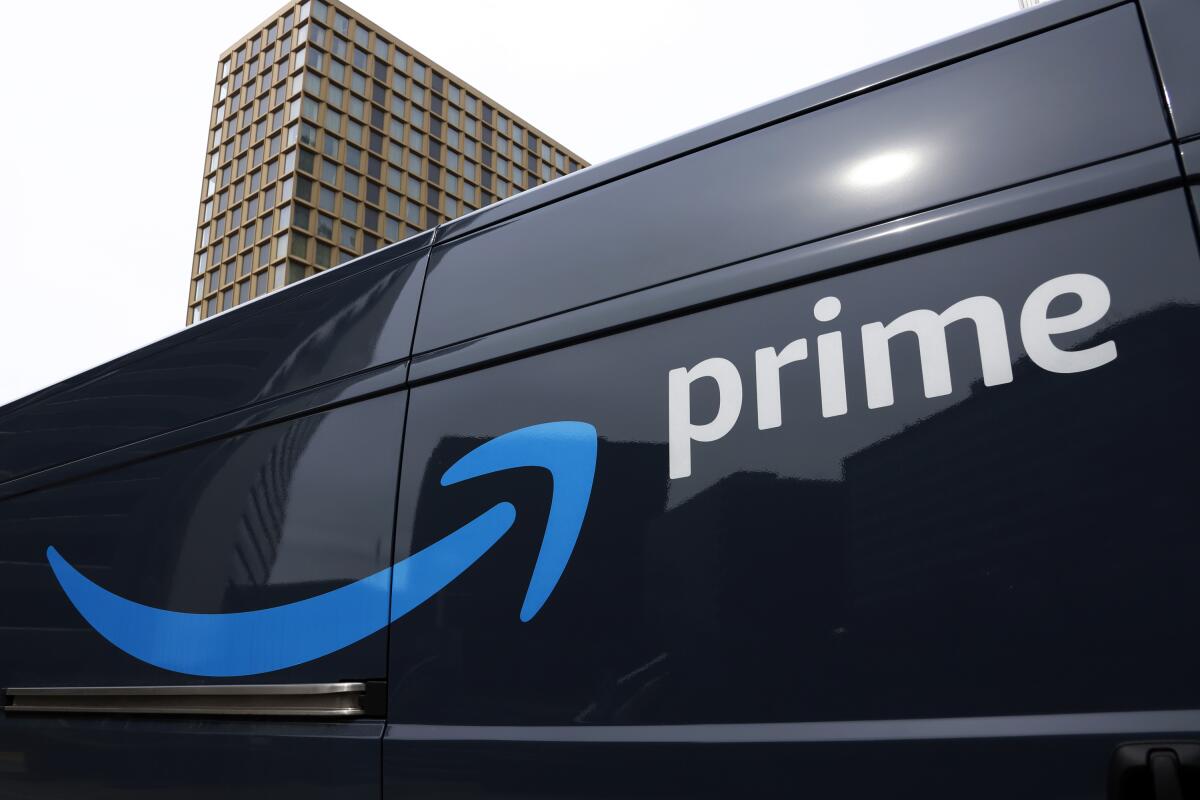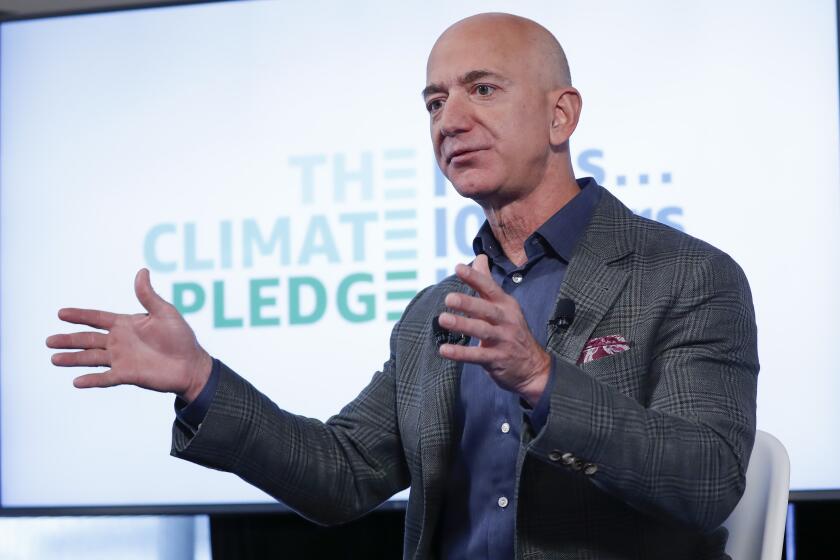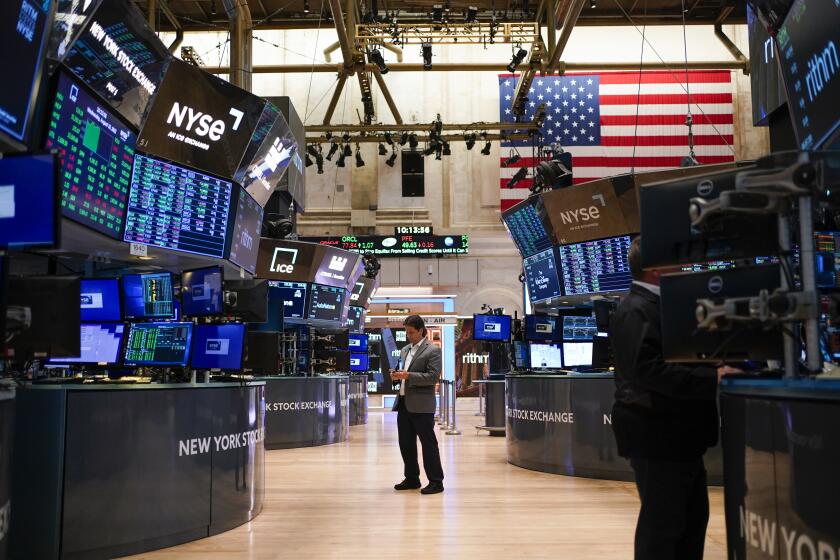Opinion: Amazon is being sued by the government. What will that mean for consumers?

Last month, the Federal Trade Commission filed a major complaint in federal district court alleging that Amazon is an illegal monopoly. The FTC may be able to win its case. But given the limits of American antitrust law, that legal victory would do little to curb Amazonâs economic power.
To prevail, the FTC â which is joined by 17 states in its lawsuit â must show that Amazonâs business practices unfairly harm its competitors and customers. The agency is challenging several of Amazonâs practices, but its strongest argument is that Amazon punishes merchants who offer lower prices on any other online platform.
While many customers are satisfied with the offerings on Amazon, they may not be aware that Amazon is creating an unfair marketplace for the sellers they rely on, which can raise prices and limit their options.
The lawsuit by the Federal Trade Commission and 17 states shines a light on Amazonâs monopolistic actions that buyers and sellers know all about. But whatâs the remedy?
In fact, Amazon used to explicitly prohibit merchants from offering lower prices elsewhere, a practice that could harm rival platforms and drive up prices overall. The company stopped after the practice attracted public attention, but the FTC is alleging that it continues this prohibition by other means, such as by preventing consumers from accessing the âAdd to Cartâ and âBuy Nowâ options for price-cutting merchants and burying those merchantsâ goods at the bottom of search results.
According to the FTC, most merchants canât afford to give up access to Amazonâs network of customers just to offer lower prices elsewhere. The companyâs practices therefore restrict merchantsâ ability to set their own prices. If proved, the FTCâs case here is strong because Amazon doesnât appear to have a valid business justification for controlling prices on rival platforms.
But it is not enough to show that Amazon engaged in unfair tactics. The FTC must also show that Amazon is a monopoly, which means it has substantial power to raise prices or limit competition. Americans may wonder: If the colossal Amazon doesnât have market power, then who does? Yet this definition is often a matter of legal dispute.
The FTC alleges that Amazon has a more than 70% share of the market for online retail superstores, meeting the legal threshold for monopoly power. Amazon has substantial power in this market because it effectively uses strategies it could not pursue if consumers and merchants could easily switch to rival online sellers. The FTC also alleges that Amazon compromises the quality of consumersâ searches, charges merchants excessively high fees and requires merchants to purchase other services in order to access Amazon Prime consumers â all things it can do because itâs a superstore.
Ad delivery is not simply predicting our preferences, but also shaping them and steering us toward specific opinions.
The economic reality is that online platforms â such as Amazon and EBay â serve buyers who want a platform with as many sellers as possible and vice versa, which creates a network effect. As a result, platform markets are dominated by a few super players that compete for the biggest network and are hard to displace.
If a court accepts this argument and agrees with the FTC that Amazonâs market is online superstores, then it will likely find that the company has monopoly power. But a court could instead conclude that consumers can reasonably buy from any seller with a website and, therefore, that Amazonâs market consists of all online retail. In that case, Amazonâs market share is close to 40%. Or Amazonâs market could be defined even more broadly as all consumer retail in the U.S., dropping its share of sales down to around 11%. Either of these conclusions would end the FTCâs case.
Suppose the FTC prevails against those possibilities and wins. What will result?
An antitrust remedy must be tailored to the defendantâs illegal actions, and nothing in this case would prompt a court to break up Amazon. The ruling would instead order Amazon to stop the illegal conduct such as discriminating against merchants that offer lower prices elsewhere or insisting that merchants buy Amazon packaging services to access Prime customers.
We canât expect the industry to transform itself in 2023. That push must come from government and voters.
These changes could slightly lower prices for consumers and merchants, and since Amazonâs annual sales are more than $500 billion, even a small percentage of savings would be a meaningful amount for consumers as a whole. But Amazon still has too large an online footprint for competitor platforms to undercut its individual prices substantially.
Private lawsuits might also follow an FTC victory, with consumers and merchants claiming damages from Amazonâs illegal practices. This could result in Amazon paying out hundreds of millions of dollars to plaintiffs â but that is not a lot of money to Amazon.
In other words, although an FTC victory may yield some gains to individual consumers, merchants and private plaintiffs, Amazonâs dominance of the online retail market will not change â and it will retain great power over the merchants who want to access that market.
More than two decades ago, the Department of Justice won a narrow antitrust victory over Microsoft, but that did little to change Microsoftâs dominance over operating systems for personal computers. Similarly, an FTC victory over Amazon would not weaken its grip on online retail. While it may yield some monetary victories, American antitrust law is a very limited tool to restructure the uneven playing field of American business.
Prasad Krishnamurthy is a professor of law at the UC Berkeley School of Law.
More to Read
A cure for the common opinion
Get thought-provoking perspectives with our weekly newsletter.
You may occasionally receive promotional content from the Los Angeles Times.













